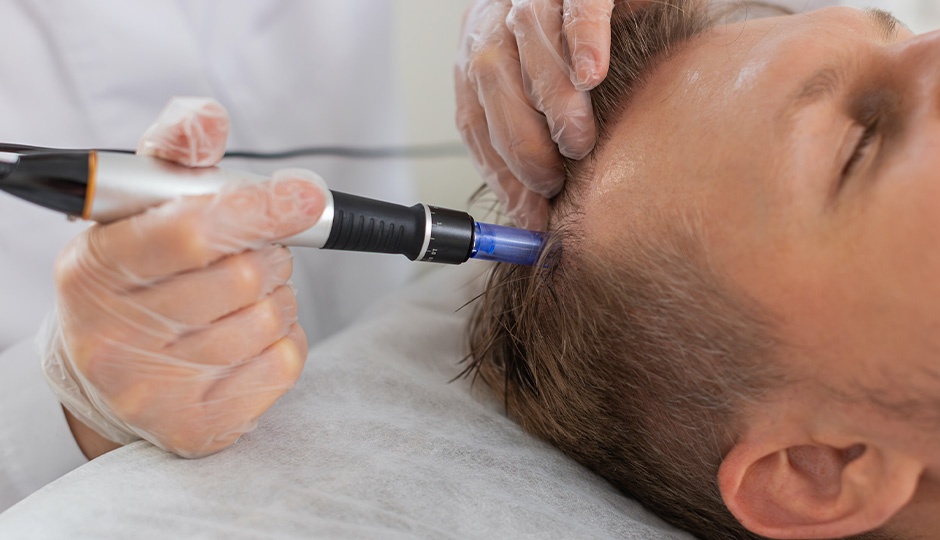Your scalp is one of the most important parts of hair health. This is where hair follicles live, where they grow hair. If there are problems with your scalp, chances are good your hair will not grow in as long or as healthy as you would like it to. The good news is many of these scalp problems can be reversed or improved with careful attention. Yet, many people ignore them until they start experiencing thinning hair. Pay close attention to what’s happening with your scalp and you may learn strategies for improving your hair health along the way.
What Is Making Your Scalp Unhealthy?
There are many reasons why you may have an unhealthy scalp. Here are five of the most common signs of concerns related to the scalp itself.
1: Itchy skin
If you find yourself scratching your head often, and not because you are pondering something, it could be due to dryness of your scalp. This is one of the most irritable and uncomfortable of situations because it often leads to scratching, which further damages the skin there. Many times, the underlying cause is some type of irritant, such as a chemical in your hair products, or over dryness of the scalp itself. You may want to choose a moisturizing treatment to use. If it continues to occur, be sure to check with your doctor about potential scalp related conditions such as dermatitis or psoriasis.
2: Redness
When the skin is irritated at any location on the body, it causes inflammation. That means that the body’s immune system targets that area to fix the problem. Redness may be a sign of inflammation and damage. Some people may develop chronic inflammation of the skin as a result of this condition. Psoriasis, fungal conditions, and eczema are some of the most common causes of this situation.
In other cases, this redness may be due to an allergic reaction or due to putting too much strain on your hair such as putting your hair in tight ponytails or braids. You may also have damage to the follicles, leading to hair thinning.
3: Too much hair loss
Everyone loses about 100 hairs a day. If you notice that you are losing more than this, it could be an indication of an underlying problem right at the scalp. For example, you may have developed hair loss as a result of a condition like alopecia areata, which is a type of stress-related hair loss. Some people may also have hair loss because of other factors already mentioned, such as bacteria or fungal infections, psoriasis, or inflammation. Note that losing too much hair can be related to other concerns too, such as hormone imbalances and poor nutrient intake.
4: Scaling
Some may take a closer look at their scalp and wonder about the scale-like development there. There are a few reasons this can happen. If you have a flaky scalp, sometimes described as a patch of scales, it may be due to a condition called seborrheic dermatitis. You may know it as dandruff.
Dandruff occurs as a result of malessezia, a type of yeast that develops on the skin. Other conditions, such as contact dermatitis can also cause this. Those with this condition may have an irritation brought on by exposure to hair styling products or other chemicals.
Scaling and flaking like this is an indication that your hair needs help especially in the way of moisturizing products. Look for all natural shampoos to use as well.
5: Pain and burning
There are some situations where you may feel as though your hair or scalp is on fire. It may feel painful to touch or painful all of the time. When this happens, it is often due to the presence of a bacterial or fungal infection or another cause of inflammation. A burning sensation is nothing to ignore. It often means a more advanced development of a condition including the risk of an infection. It’s best to turn to a doctor to determine what steps need to be taken to help your skin to become more soothed.
Don’t ignore what’s happening to your scalp. If you’re unsure, ask your hair professional for insight into what’s happening.
At Unique Hair Concepts, we offer a free hair and scalp analysis that will provide more insight on your scalp health. Schedule your appointment today. The center is open Tuesday through Saturday.






